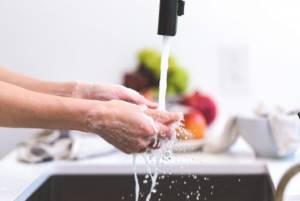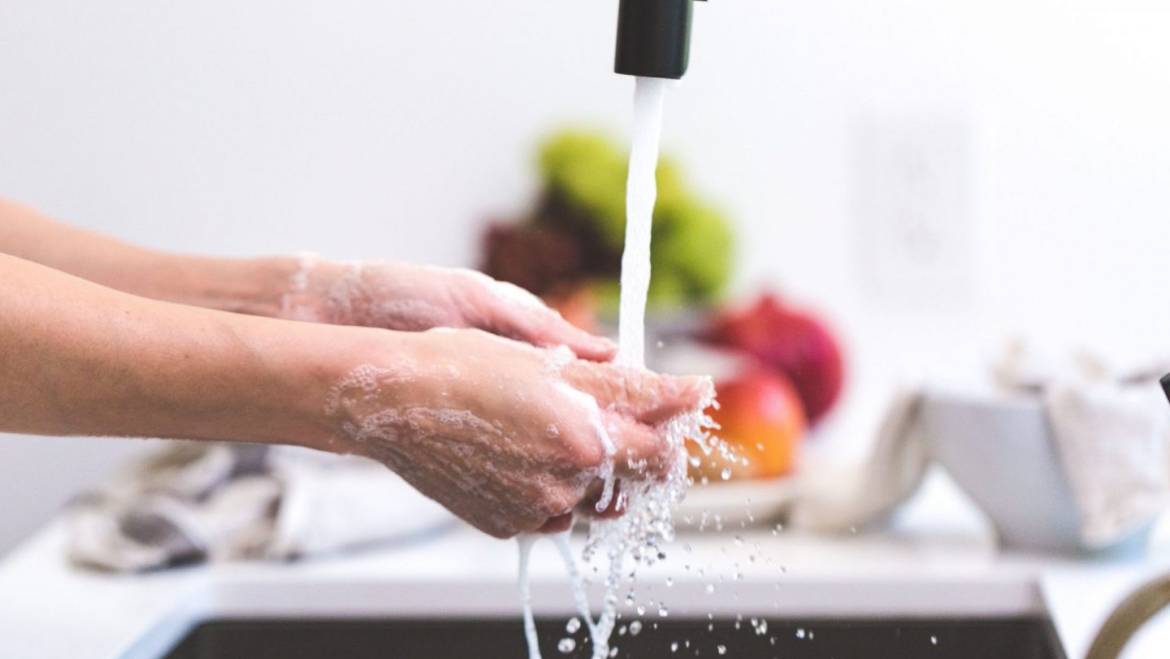Unless you’ve been living under a rock, you are well aware of the rapid spread of the Coronavirus or COVID-19, that originated in the Chinese city of Wuhan and is currently causing global concerns for health and hygiene. One of the main reasons for the rapid spread comes down to people traveling across the globe with traces of the virus on or within them. It has spread to neighboring countries, along with other major countries and entirely separate continents, including recent cases in the U.S. as well.
We know there’s a trove of information out there right now explaining how the virus is contracted and travel information, but we wanted a place that shows some really simple steps you can take to help ensure you don’t contract or spread the disease, or other germs out there right now.
-
Wash and Dry Hands Thoroughly
The first tip to arm ourselves against catching illnesses is one taught to us from the time we are young; Wash and rinse your hands with soap and water for 30 seconds, especially after eating or touching dirty surfaces. This would reduce the risk of infections, bacteria or germs spreading, from one person to another.
It is also recommended to wash your hands when you’ve come into person to person contact, i.e. handshaking. Don’t forget to dry them with a clean towel, or hand dryer if using public toilets.

2. Seek Advice for Appropriate Travel and Medical Insurance
Some travel insurance providers are offering extra services and support to accommodate for the virus. This is especially for those who have travelled from Wuhan or mainland China in the last several weeks. It’s best that you contact your insurance company to discuss the situation and see what exact support they can provide, as well as make sure you are sufficiently covered in the event you need medical attention.
For anyone traveling abroad in the near future, share any health-related issues and medical history with a medical professional. They’ll be able to give you the best health advice to follow and perhaps updates on the situation surrounding the virus itself.
3. Carry Tissues and Hand Sanitizer
This is perhaps the most practical tip when it comes to being hygienic. Travel-sized tissues and hand sanitizer can be pretty handy in times where a service location or facility may be out of soap, or tissues.

You can use tissues for it’s practical uses, as well as to wipe away potential germs on surfaces you’ll be coming to close contact with. This will make sure your environment is bacteria free.
4. Avoid Contact with Symptoms of Flu or Common Cold
Coronavirus shares similar symptoms to those who’ll suffer from a flu or the common cold. Coughs, fever, headache and runny noses are among the main signs to watch out for. Pneumonia, kidney failure, and breathlessness are among the most severe ones. Avoid physical contact with anyone with symptoms of a flu or respiratory-related illness to avoid catching the same illness yourself.
The can spread through the gentlest of handshakes and especially from a touching a person’s face, or them touching you after they’ve touched their own face. If you happen to end up making contact with them, then follow the first tup and wash your hands at the earliest opportunity, as well as take the time to clean any surfaces that may be contaminated.
5. Avoid Consumption of Undercooked Meat and Age-Based Meals
The virus is thought to have stemmed from bats, with similar viruses such as SARS and MERS also stemming from animals, mainly bats and camels. Undercooked animal-based food such as meat, eggs, and chicken are at a higher risk of carrying infection.
Makes sure the meat is washed thoroughly before being steamed and cooked properly, especially if you are cooking in and AirBnB or a rented home. For example, no redness appearing on the meat should be sufficient. If you’re abroad fro travels, then check the food hygiene rating of the places you are eating at.
Alternatively, you can go for plant-based meat and vegan or vegetarian options if they’re available to you.
6. Work Remotely
If you are an employer, or an employee, it is a growing trend to minimize the spread and risk of germs and infection to work remotely from home, rather than commute or travel to work, exposing yourself or others to potential infection. If your company holds conferences, think about converting them to phone call conferences and allowing employees to do their work from their home environment if at all possible. If you are unable to work remotely, practice all of the hygiene tips in this post to minimize your risk of catching illnesses.

So to summarize, wash your hands regularly. Properly cook and process any animal food you are having. Ensure you have plenty of tissues, soap and hand sanitizer. Always do your research for any further travel guidance given to you when traveling to countries or areas with serious health issues.
Keep yourself clean, prioritizing your safety. A lot of the advice given here are a “‘back-to-basics” concept that are easy to do given the conscious though and carefulness.
If you have any questions or concerns regarding how to best keep yourself safe, visit your state’s health organizational website for updated information. If you need to speak to someone regarding insurance coverage, please don’t hesitate to call us at (623) 889-7600.

